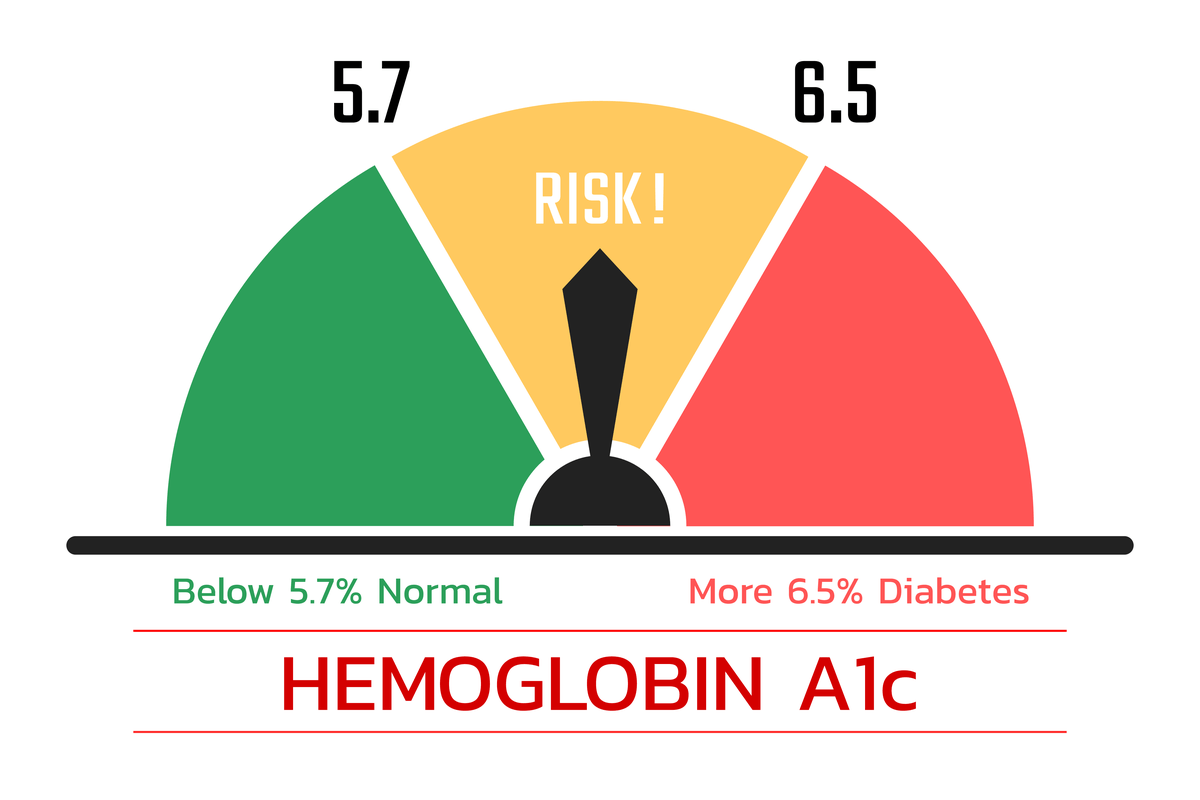Last updated on September 1st, 2022Poor lifestyle and eating habits can lead to the risk of developing diabetes or pre-diabetes. If not taken care of, diabetes can lead to several health complications like cardiovascular disease, kidney damage, stress, depression and makes your life worse. Therefore, you should keep a check on your blood sugar levels. On …
Last updated on April 12th, 2024The amount of glucose (“sugar” expressed in mg/dL) present in the blood fluctuates during the day and at night. Our body maintains a level of blood glucose for metabolism. According to the American Diabetes Association, the normal sugar level in a healthy body is less than 100 mg/dL. However, these blood …
Last updated on November 3rd, 2023What Is HbA1c? HbA1c full form is hemoglobin A1c or glycosylated hemoglobin. It is a form of hemoglobin that contains sugar. Hemoglobin is a kind of molecule that is present in red blood cells and helps in carrying oxygen to the body’s tissue. Read this blog to know what the hba1c …
Winter is a season that brings unique challenges for managing diabetes. The cold weather not only increases the body’s resistance to insulin but also heightens the risk of illness and certain diabetes-related complications. For those with diabetes, winter’s low temperatures can slow down circulation, lead to dry skin, and trigger fluctuations in blood sugar levels due …
Frequent urination is a common symptom for many diabetic patients. It is often caused by uncontrolled blood sugar levels. When blood glucose is elevated, the kidneys work harder to remove the excess sugar, increasing urination. Understanding why this happens is crucial for managing diabetes effectively and preventing related health issues. In this blog, we’ll answer the …
Insulin is a hormone produced by the pancreas that allows glucose to enter cells in muscles, fat, and the liver, where it’s used for energy. Insulin resistance occurs when cells become less responsive to insulin, resulting in higher blood sugar levels. In response, the pancreas produces more insulin to help glucose enter cells, creating an excess …
Immune system support, bone wellness, and general well-being all depend on vitamin D. While sunlight is the main source, certain foods can help meet Vitamin D needs, especially for those on plant-based diets. Although fruits and vegetables don’t directly contain high levels of Vitamin D, some support its absorption and utilization. This blog explores the best …
Diabetes hyperphagia, or excessive hunger in diabetes, is a common symptom. It can signal fluctuating or uncontrolled blood sugar levels. Many diabetics experience intense hunger, often driven by insulin resistance or low blood sugar episodes. Recognizing and managing this hunger is essential for stable glucose levels and overall health. In this blog, we’ll explore the causes, …


 English
English
 العربية
العربية 














